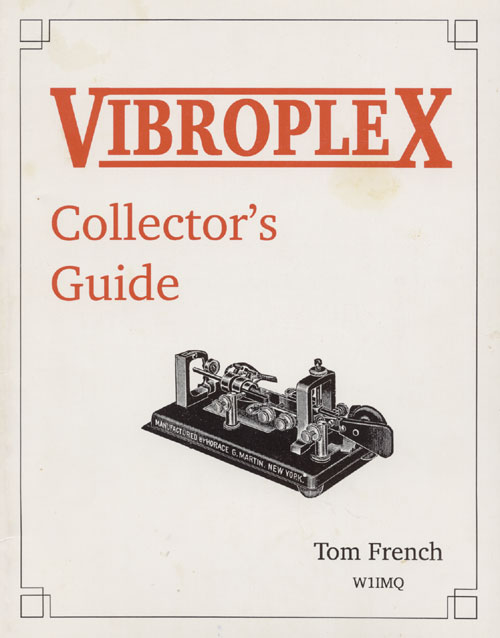 Two notable books have chronicled the history of the
Vibroplex Company:
Two notable books have chronicled the history of the
Vibroplex Company:
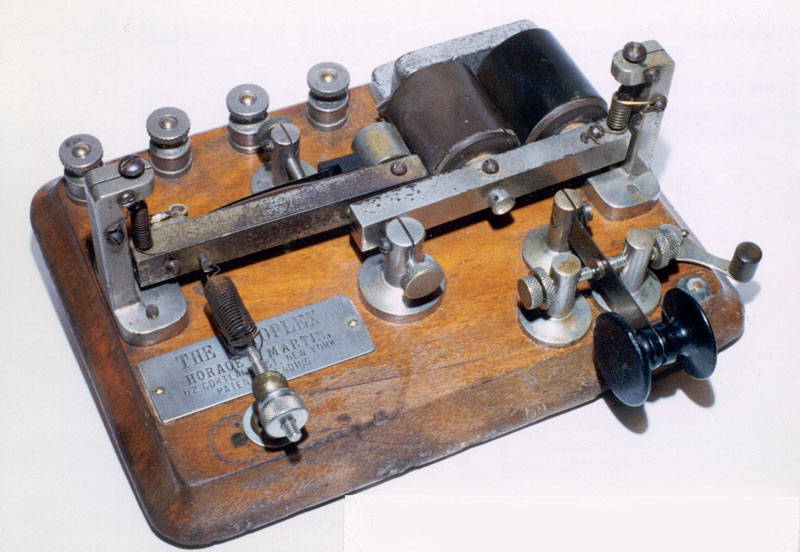
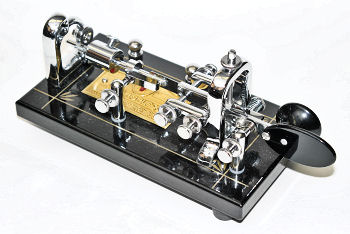
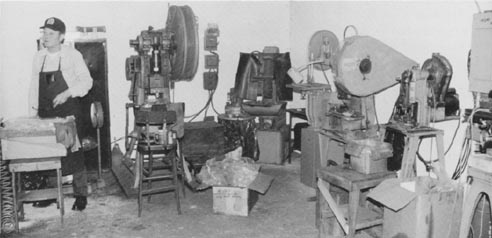
A revolution in communication occurred with the development of the telegraph.
However, the early telegraph keys used to send messages caused severe strain
on the telegrapher's wrist - a condition now known as carpal tunnel syndrome.
In 1902, inventor Horace G. Martin patented the first in a line of devices
which solved the problem: the Martin Autoplex, an electro-mechanical sending
device which required batteries.
Two years later, Martin went into business with a group of entrepreneurs,
forming the United Electrical Manufacturing Company. It was also in 1904 that
Martin filed his second patent for a new sending device which used a weighted,
vibrating arm and did not require the use of a magnetic coil or batteries.
This device was the basis for the first Vibroplex.
In 1908, the association between Martin and U.E.M. ended when the latter went
out of business. However, J.E.Albright, who began a business catering to the
telephone industry in 1890, began marketing the Vibroplex for Martin. On March
12, 1915, Albright filed a certificate of incorporation in New York for the
Vibroplex Company, Inc. Within a few short years, Vibroplex came to represent
the best of the telegraphic, and later Amateur Radio, industry.
To read John Casale, W2NI's history of Horace G. Martin and Vibroplex,
please connect to the internet and go to:
http://www.telegraph-history.org/horace-g-martin/index.html
 Two notable books have chronicled the history of the
Vibroplex Company:
Two notable books have chronicled the history of the
Vibroplex Company:
The Vibroplex Collectors Guide by Tom French - W1IMQ
is in its 3rd Edition.
It is available for sale through Artifax Books: ( www.artifaxbooks.com )
You may click here for a few excerpts:
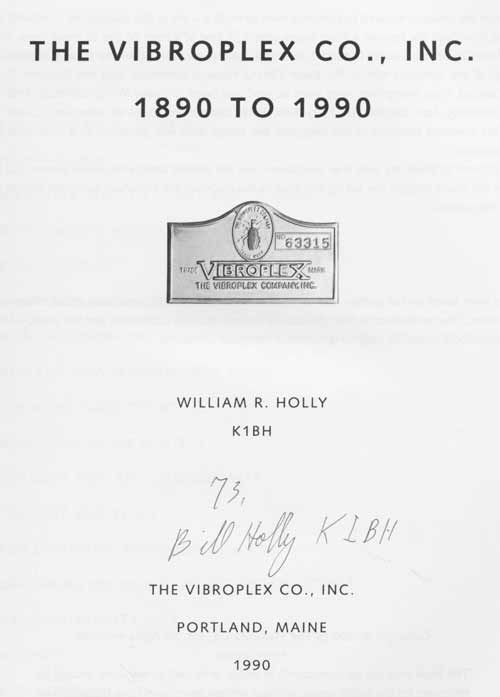
The History of the Vibroplex Company by Bill Holly - K1BH
was written in 1990.
A very few copies of this book were available from the Vibroplex Company
(www.vibroplex.com) in 2006.
You may click here for a few
excerpts:
This CD link will take you to the
Complete Vibroplex Website as it appeared in 2006
and is reproduced on this CD.
It includes some history and a complete 2006
catalog of Vibroplex keys, parts, and services.
This CD also includes an
Illustrated List of Discontinued Vibroplex Keys.
and a great deal of additional material including some design drawings.
This CD also includes the
"Date your Vibroplex Keys" section of the Vibroplex
Website that presents the research of John Ellwood - WW7P that allows
you to learn the year in which your Vibroplex was made when you know its
serial number.
The following photographs show some of the day-to-day operations of the
company in 2006.
This is Felton "Mitch" Mitchell, W4OA, the President of the
Vibroplex Company.
Office Manager, Betsy Hopson, WB4ZYK, keeps up with all orders, email
communications, and customer service. "Vibroplex prides itself on our
customer service. Talking with the customers is my favorite part of the job.
You meet the nicest folks, many from overseas, and make friends for life. It
is especially nice to meet someone at a hamfest that you have been talking to
for years!"
Maura Durant's job is to keep up with all the inventory and keep
orders flowing to vendors and machinists. "This is a full time job, and it
surely does help me to understand what goes into the making of a key and you
can talk to customers better when you understand the parts."
Joan Turner is shown gathering parts for building keys.
Vibroplex has nearly 400 parts in stock. Many parts are still available for
obsolete keys. "Most parts are made by our machinist, Kevin Mills, while others
are subcontracted. We also subcontract plastic fabrication, chroming and
powder coating. Vibroplex is very fortunate to have Kevin Mills as our head
machinist. He is a brilliant problem solver and attends to details and
accuracy in all of his work."
This is machinist Kevin Mills standing in front of the computer controlled
milling machine:
This is a front view of the FADAL Model VMC15XT Computer Controlled
Vertical Milling Center:
These are damper arms, Original levers, and yokes waiting for machining:
These are Code Warrior Jr. top parts cut and ready for machining in the
computer controlled milling machine:
Machining Vibrokeyer bases with the computer controlled milling machine:
This is a view of the 21 station tool turret in the computer controlled
milling machine:
The computer controlled milling machine performing an automatic
tool change:
Vibrokeyer Bases being drilled:
This is the radius tool rounding the tops of Vibrokeyer bases:
Manual mill facing of the tops of Original bases in preparation for
chroming:
A closer view of the manual mill facing of the tops of Original bases
in preparation for chroming:
Iambic, Vibrokeyer, Hand Key, and Original bases ready for chroming:
Drill Presses and the special fixture that is used for making
Original levers:
A closer view of the special fixture that is used for making
Original levers:
The 18 X 60 Lathe ready to begin making speed weights:
The 18 X 60 Lathe in the process of making speed weights:
The miniature lathe that is used for making trunion pins and other
small parts:
Dot contact springs being formed by heat and quenched in an oil
bath:
Most of the components of the keys are assembled in advance to speed
the key making process. Liz Fearn puts together the mainframes for all
of the key models. The lever arms, contact posts, and damper assemblies
are all assembled in advance.
All Vibroplex keys are assembled by Joan and Liz. They may be put together
one at a time or in groups of five to 10 at a time. They make about
10 - 20 keys a day. Vibroplex offers customizing, left
handed keys and upgrades that include jeweled parts.
This is production manager Joan Turner in the Assembly Room.
Liz Fearn makes sure that each key is properly packed for shipment.
Vibroplex uses a special key insert and key box to secure the keys.
Then they are double-boxed for shipping. Liz says "We have found that
no matter how carefully an order is packed, the key may still be treated
like a bowling ball by the carrier. We stand by our customers to help
resolve any damage problems. That is why we strongly suggest that
customers keep the original key box in case they have to ship the
key in the future."
Maura checks keys in stock for shipping.
Maura says "We make every effort to keep a quantity of each model of key
in stock for shipping so that orders may be filled immediately. Sometimes,
however, back orders for parts delay our ability to ship a key despite our
best efforts."
This is Betsy Hopson, WB4ZYK, the office manager and refurbisher evaluating
keys that have been sent in for refurbishing. "Our philosophy is not to do
anything drastic to a key that would affect the age value and integrity of the
key. That is why we refurbish rather that restore old keys. The biggest
challenge to date has been several Hurricane Katrina keys that sat in salt
water for days. In that case the bases had to be replaced, but the top parts
were cleaned and allowed to show the corrosion spots as a reminder of what the
key and owner had experienced. I also have a great time with an old key like
the Model "X". Nothing is done to this key except for a good cleaning. Since
each part is cleaned individually, it is fun finding ways to keep track of the
parts and get them back together correctly!!" Betsy refurbishes about 40
keys a year.
This is the building that houses the Vibroplex Company in Mobile, Alabama in
2006.
Tom Perera
Ph. D. - W1TP
Internet On-Line Telegraph & Scientific Instrument Museum:
Vibroplex Manufacturing Facilities in 2006:
The company website: http://www.vibroplex.com always
contains the very latest catalog of their telegraph keys, parts and repair
services, and related material.
He is shown with his telegraph key collection. He is holding the new 100th.
Anniversary Vibroplex Original.
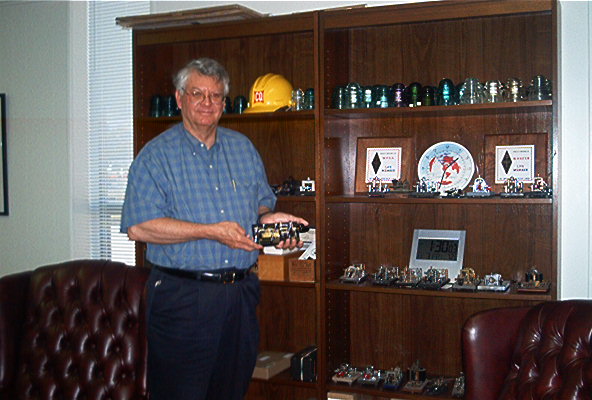
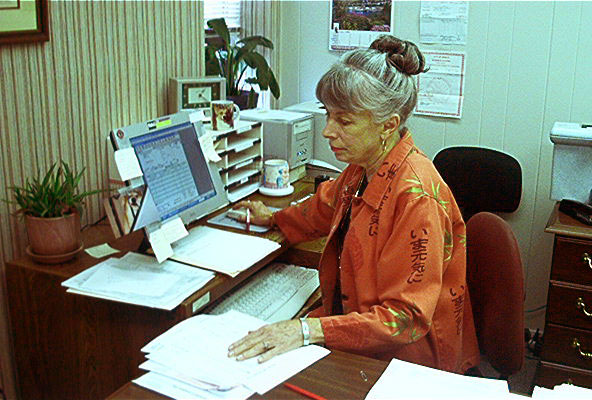
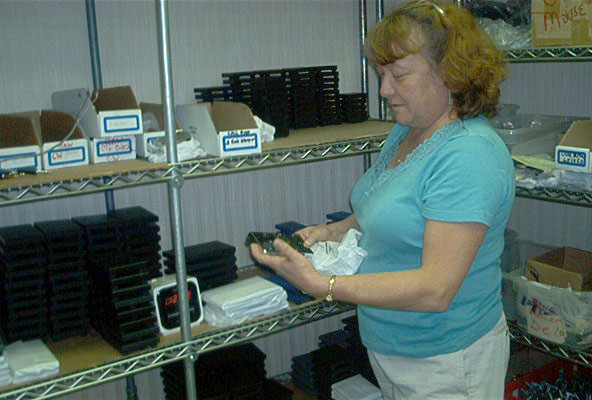
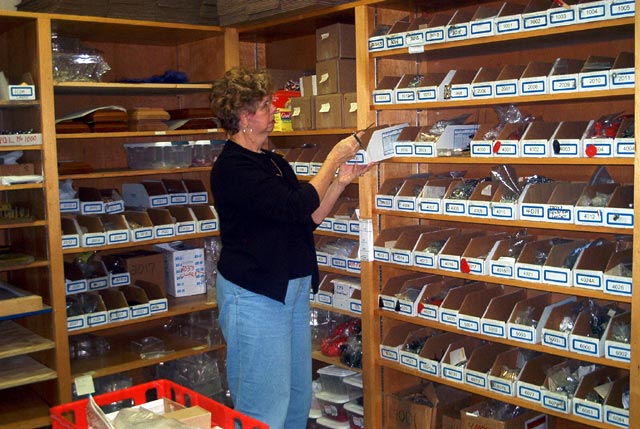
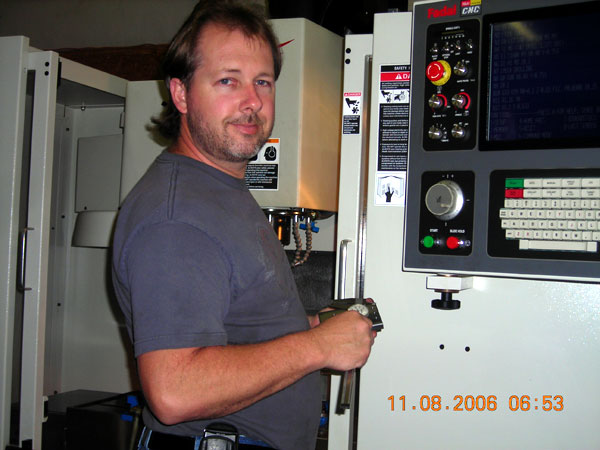
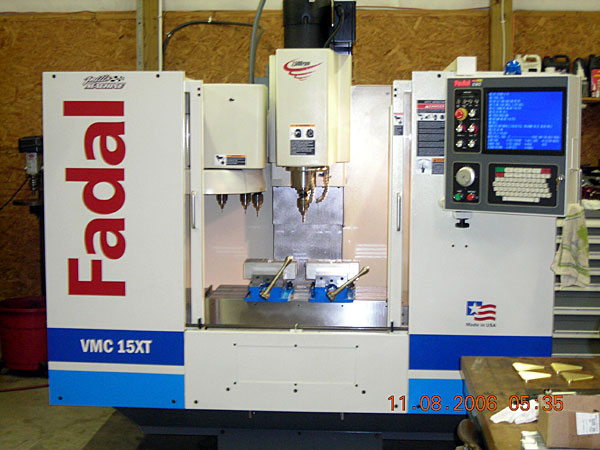
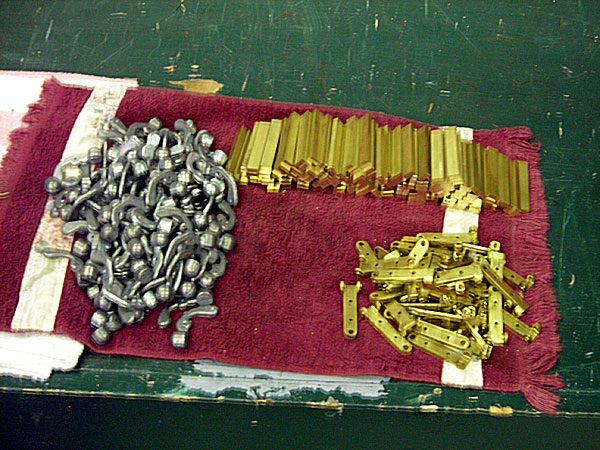
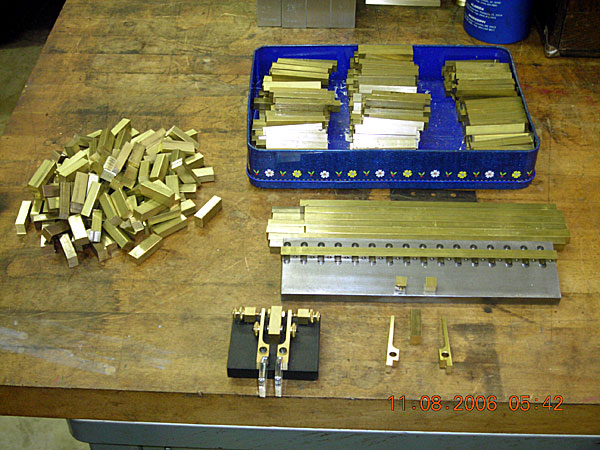
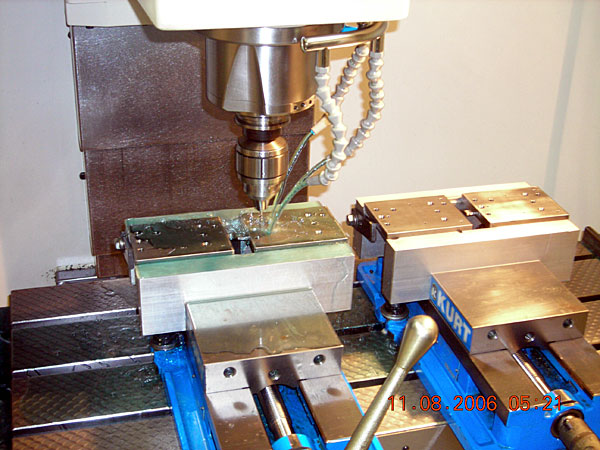
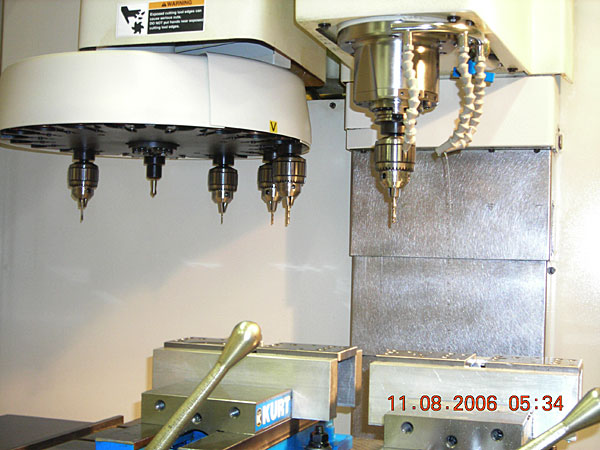
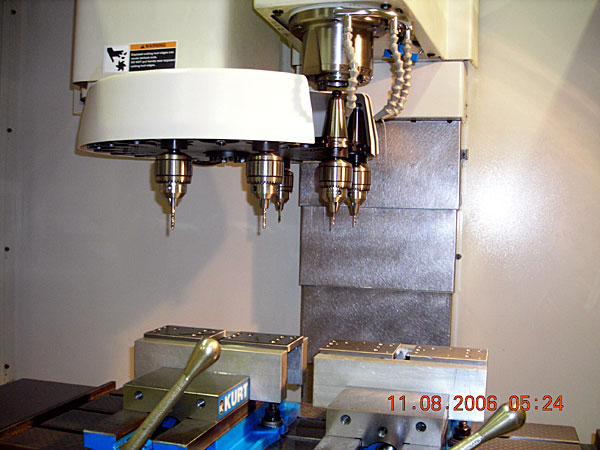
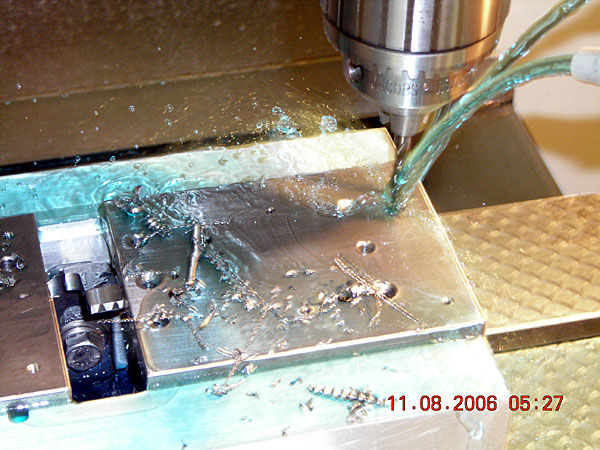
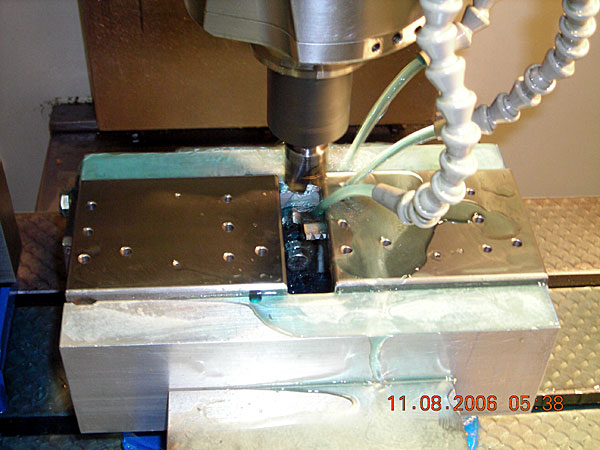
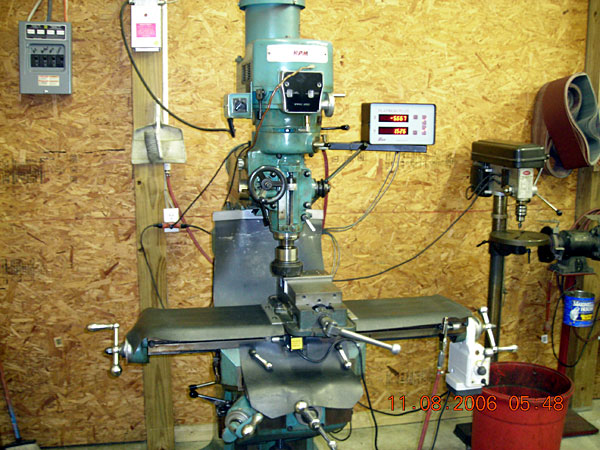
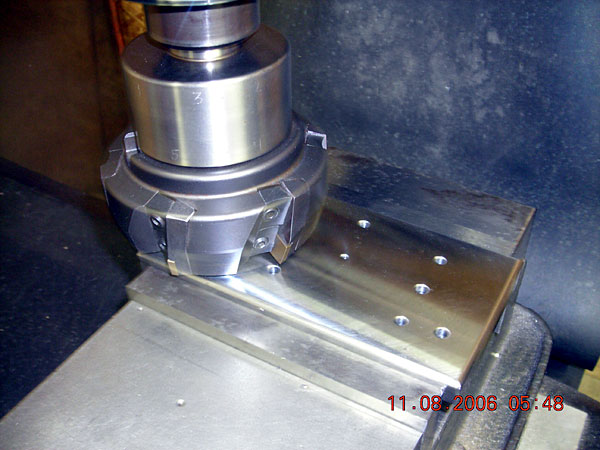
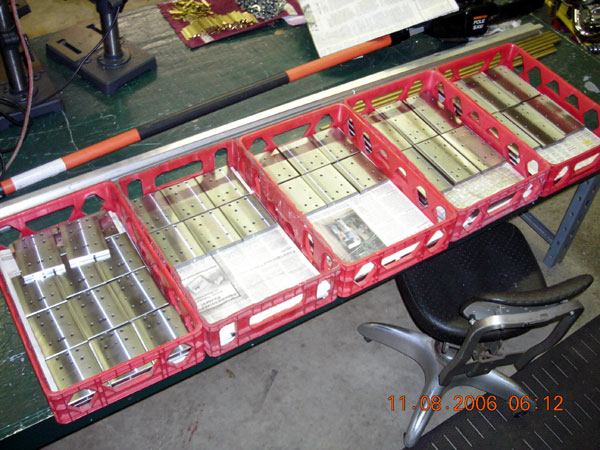
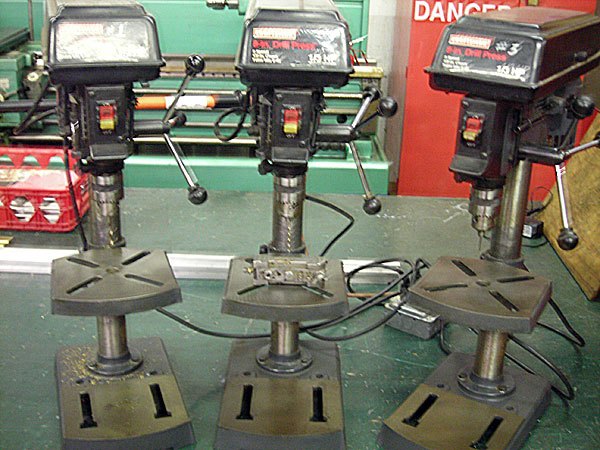
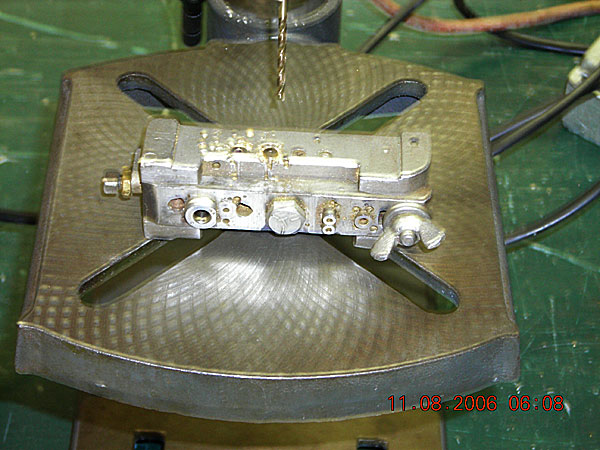
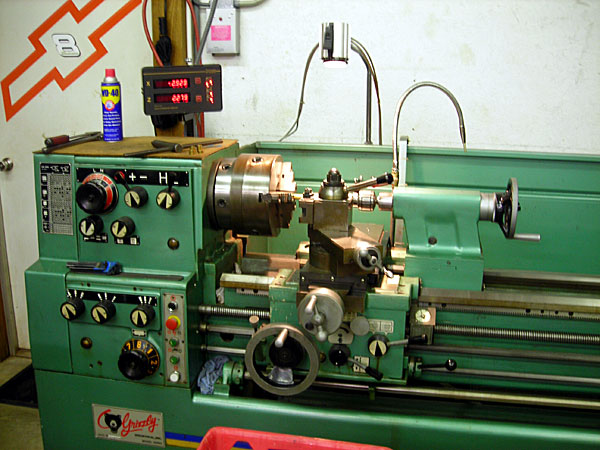
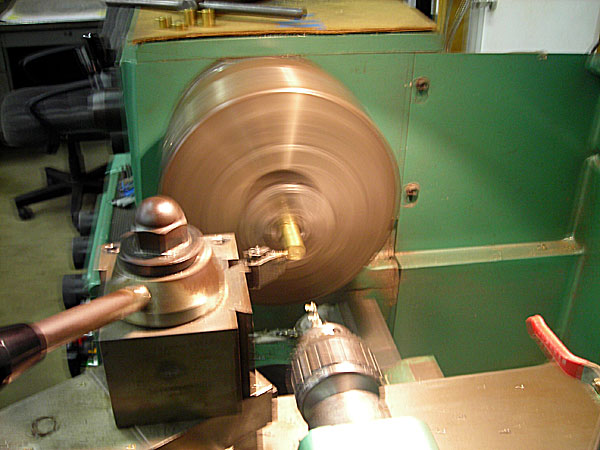
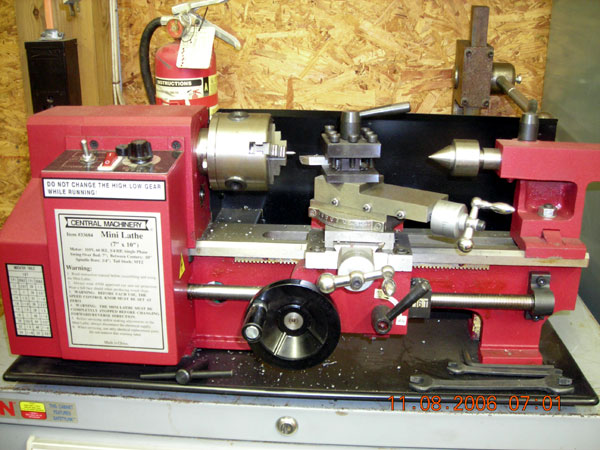
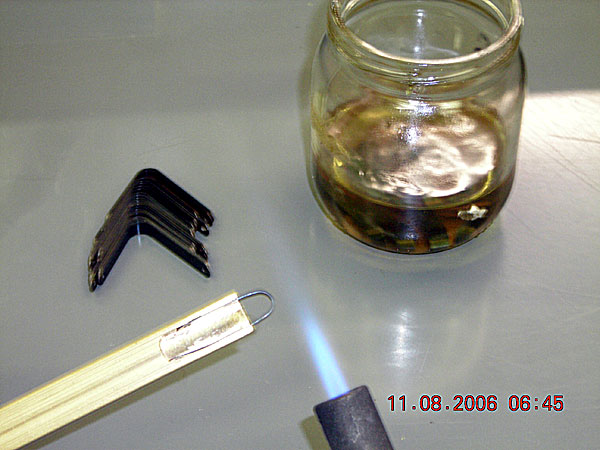
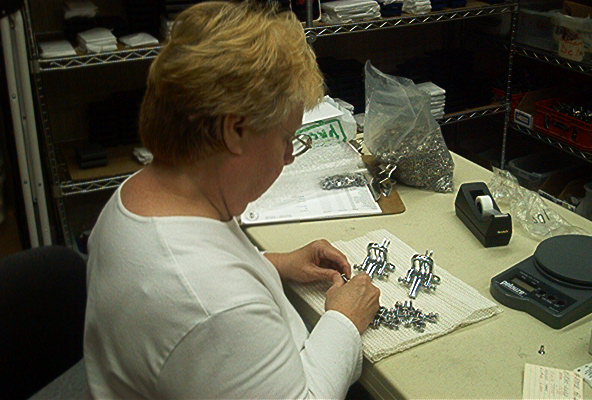
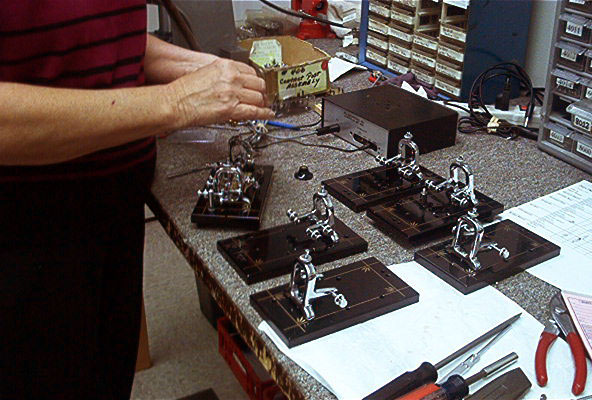
Each key is assembled "lovingly" by hand.
Then it is tested before shipping.
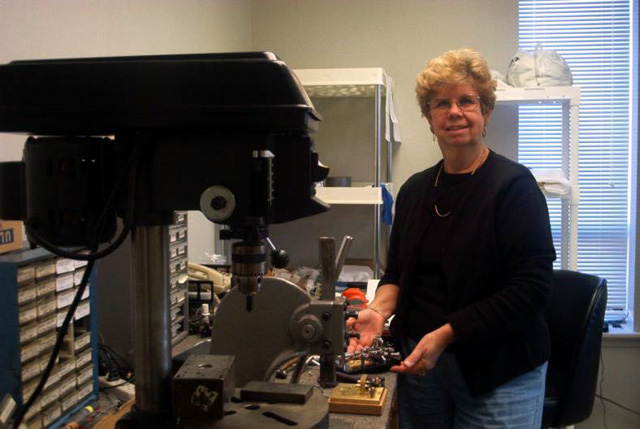
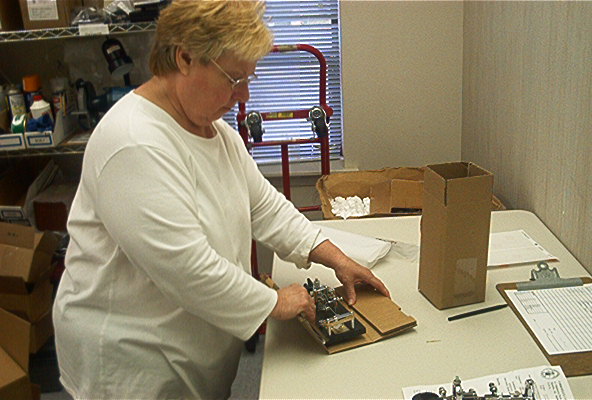
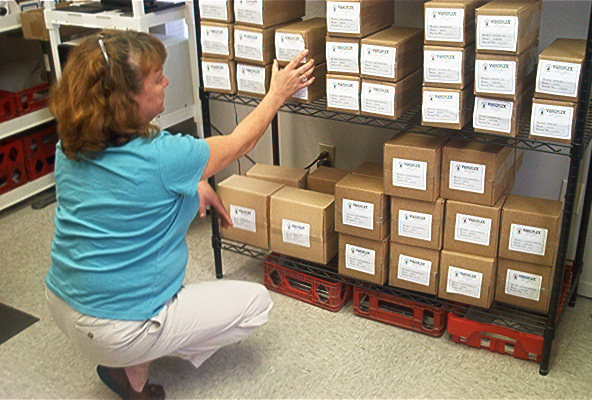
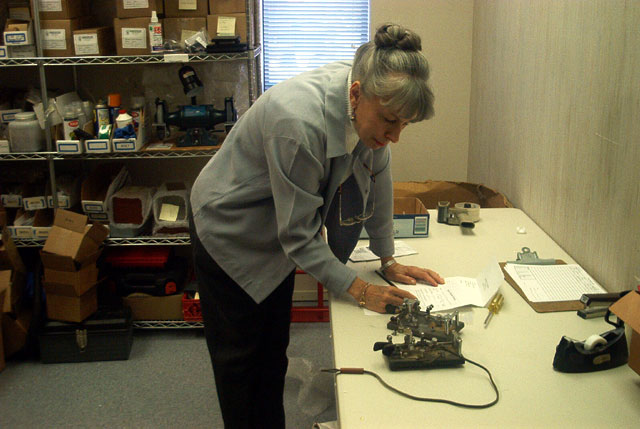
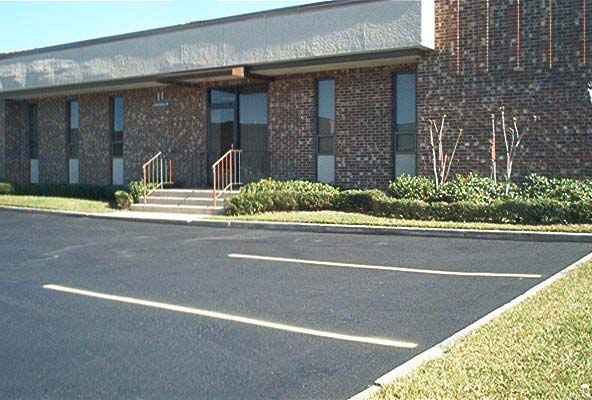
Professor Emeritus: Montclair State University
(I receive over 200 spam messages daily.
To help me avoid them, I ask you to type my email address as
follows with no spaces between words:)
http://w1tp.com
or:
http://www.chss.montclair.edu/~pererat/telegrap.htm
Internet ENIGMA Museum:
http://w1tp.com/enigma